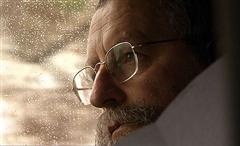
Archives

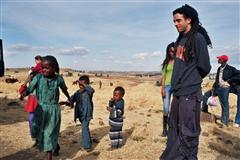
Black Over White
Tomer Heymann followed Israeli pop/world-beat band The Idan Raichel on their 2006 concert tour to Ethiopia and emerged with a documentary that rollicks and rocks. The film, part lighthearted road trip, part examination of multiculturalism in Israel, is a close-up ride with the young Israeli-Ethiopian-Yemenite band members, who muse on the loss of their heritage and on their excitement as tourists embracing roots in Africa. Black Over White deftly explores their cultural ambivalence and their experience of racism back home in Israel. One of the musicians is reunited with his grandmother in Addis, music is made with rural villagers and in urban clubs, and in one poignant sequence, future immigrants to Israel meet the musicians. The culminating concert-a fusion of Middle Eastern multiethnic grooves- is a success and emotional high point, but for the band members, the meaning of home remains elusive.
A People Chosen: Who Is A Jew?
This film is an excellent vehicle to explore issues of Jewish identity. Orthodox Jews, Jewish atheists, Russian immigrants, and kibbutzniks discuss their views on the controversial debate over “who is a Jew.” Interviewees featured in the film include Abba Eban, Rabbi Goren, Yigal Alon, and David Ben-Gurion.
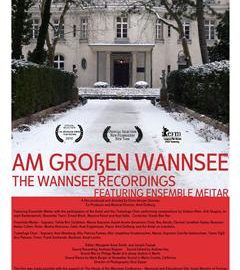
The Wannsee Recordings
On January 20th, 2009, a group of young Israeli and German musicians led by Ensemble Meitar, a Chamber Ensemble from Israel, performed the works of contemporary Israeli and Jewish composers, along with an unfinished composition by Gideon Klein, a composer who was killed during the Holocaust. This unique program was performed and filmed at the House of the Wannsee Conference and Educational Site. The film takes its name from the Wannsee Conference, a meeting of senior officials of the Nazi German regime, held in the Berlin suburb of Wannsee on January 20th, 1942. The purpose of the conference was to inform the heads of German Government Departments of the ‘Final solution to the Jewish question’, to obtain their agreement and to subordinate their activities to the official German State policy. In essence, this was the meeting at which the Final Solution was ratified and put into motion as state policy. An important aspect of this project is its range, and the diversity of its individual voices. From Gideon Klein, who explored modernism, to Arie Shapira, an avant-garde Israeli composer controversial in his own country, to a group of younger Israeli composers who meet these new musical paradigms on their own terms, the Wannsee Recordings, are above all a concrete expression of the diversity of Jewish life, and the richness of contemporary music today. One would not expect to find the music of Arie Shapira, and Ernest Bloch, or Josef Bardanashvili and Gideon Klein on the same program. Our choice in selecting these pieces, whose diversity may seem extreme, was not to create a program which only explored the edges, but to create a space, a larger space because of the distance which exists between these various compositions, in which the individuality of each composition would have the necessary room it needs to take its unique form. The choice of performing these pieces and making this film at the site of the Wannsee conference, was not intended as a sort of revenge, but as an expression by these musicians, and through the music they selected and performed, to be present in this world and articulate their contribution to it, to not be absent from history. The Wannsee Recordings were filmed with the generous help and cooperation of the House of the Wannsee Conference Memorial and Educational Site, The Goethe Institute, and the Israel Ministry of Foreign Affairs (along the support of many others). The Wannsee Recordings were performed and filmed on the same day (January 20th, 2009), took place in the same room, and in its edited form will be the same duration (approximately 80 minutes) as the infamous Wannsee conference. This is the first time that a project like this has been allowed to be filmed inside the Wannsee villa conference room.
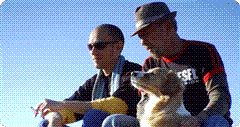
The Last Krasucky

Baghdad–Jerusalem–Fez
Yair Dalal, singer, violonist and oud player, is a great artist who has dedicated himself to the preservation of the musical heritage of Iraqi Jews. This film documents Dalal’s first performance with the group, “Baghdad Jerusalem,” at the World Sacred Music Festival in Fez, June 2010.
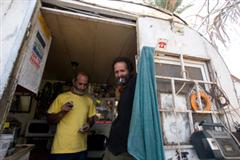
Hola and Natan

Wajeh
In this film, Wajeh, a coffee maker, sells coffee in Qalandia checkpoint, near Ramallah, and that makes him a central figure, very well known, and having an important role on the lives of thousands of people who cross the checkpoint on a daily basis.
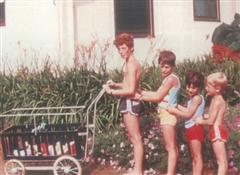
The Queen Has No Crown
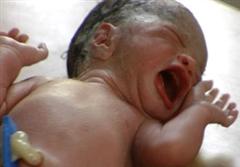
Google Baby
A journey across three continents, presenting the impact of globalization on the baby production industry.
